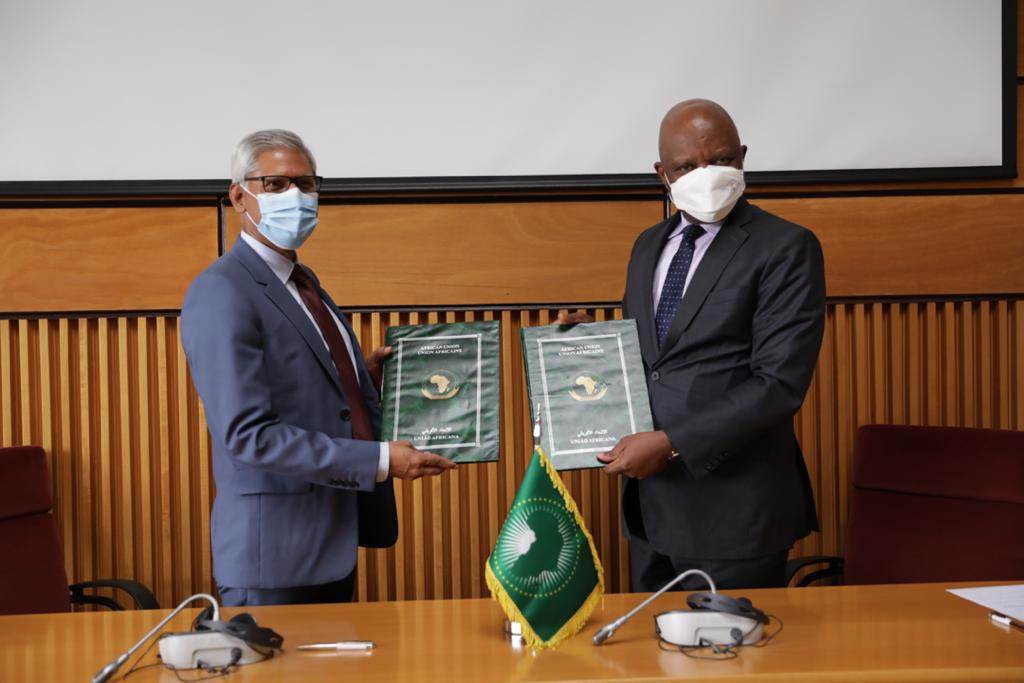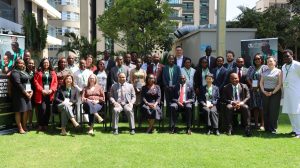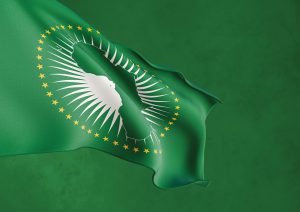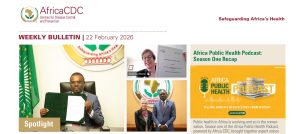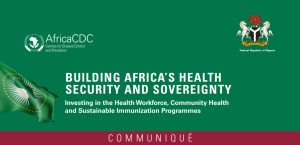Addis Ababa, 25 August 2021 – The Africa Centres for Disease Control and Prevention (Africa CDC) and the International Federation of Red Cross and Red Crescent Societies (IFRC) today launched a new collaboration to strengthen community resilience and response to public health emergencies at community level. The two institutions have signed a Memorandum of Understanding to ramp up pandemic response—including testing support to countries; community mobilization; advocacy and scaling up of contact tracing. In addition to COVID-19, the collaboration includes other areas of public health.
Africa CDC and IFRC will strengthen investments in locally-led action—for prevention and response purposes—while working with governments to ensure they intensify efforts to roll out the COVID-19 vaccination. Additionally, Africa CDC and IFRC will scale up advocacy against vaccine wastage.
This new initiative comes at a time Africa continues to face major vaccine shortages, amid a high level of community transmission in countries such as Botswana, Burundi, Eswatini, Cabo Verde, Namibia, Seychelles, South Africa, Zambia and Zimbabwe.
John Nkengasong, Africa CDC Director, said: “Africa is facing a double-edged challenge of responding to the COVID-19 pandemic, dealing with health response gaps, and also trying to ensure that the continent prepares efficiently for future pandemics, using lessons from current challenges”.
Africa CDC has been implementing various public health responses to control COVID-19. These include the engagement of community health workers in risk communication and community sensitization; surveillance activities for early case identification; contact tracing and in facilitating referrals for testing and continuum of care.
Jagan Chapagain, IFRC Secretary General, said: “What the IFRC and its network of National Red Cross and Red Crescent Societies bring to this partnership with Africa CDC is our unparalleled access to local communities. Our community-based volunteers have the access and trust that are needed to address vaccine hesitancy and sensitize communities about adherence to preventive measures”.
The Africa CDC has been working to support African Union Member States to build a wide network of 2 million community health workers (CHWs) in line with the July 2017 African Union Assembly Decision. The collaboration with the IFRC network, which includes 1.2 million Red Cross and Red Crescent volunteers across the continent is expected to strengthen community level interventions and consolidate gains in tackling the spread of the virus, while increasing awareness about vaccine benefits.
National Red Cross Red and Crescent Societies across Africa remain on the frontline of the response to COVID-19. They are providing ambulance services; conducting contact tracing and point of entry screening. They are also tackling stigma and the spread of misinformation and provide emotional comfort and psychological support to people in need.
For more information or to request interviews:
Africa CDC:
Dr Herilinda Temba (CHWs program): HerilindaT@africa-union.org
Dolphine Buoga (Partnership): DolphineB@africa-union.org
Fortunate C. Mutesi (Partnership): Mutesic@africa-union.org
Chrys P. Kaniki (Media engagement): KanikiC@africa-union.org
IFRC:
In Addis: Betelehem Tsedeke, +251 935 987 286, Betelehem.tsedeke@ifrc.org
In Nairobi: Euloge Ishimwe, +254 731 688 613, euloge.ishimwe@ifrc.org
In Geneva: Laura Ngo-Fontaine, +41 79 570 4418, laura.ngofontaine@ifrc.org
About IFRC
IFRC is the world’s largest humanitarian network, comprising 192 National Red Cross and Red Crescent Societies working to save lives and promote dignity around the world. www.ifrc.org – Facebook – Twitter – YouTube
About Africa CDC
Africa CDC is a specialized technical institution of the African Union which supports Member States in their efforts to strengthen health systems and improve surveillance, emergency response, prevention and control of diseases.Learn more at: https://africacdc.org

